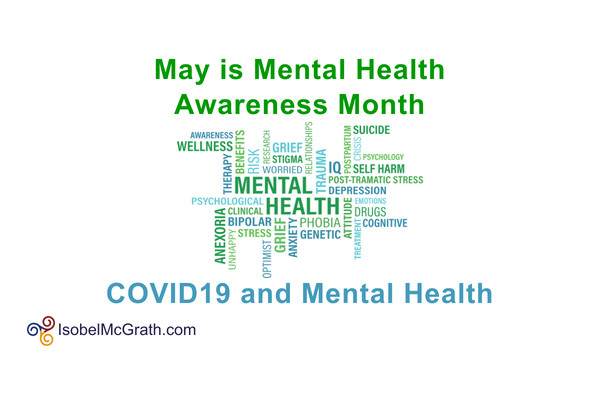May, Mental Health Awareness Month and the Impact of COVID19
Suicide rates typically increase in the Northern Hemisphere during late Spring and Summer, and that’s why May is Mental Health Awareness Month. Sadly, due to the COVID19 pandemic, suicide rates are set to get worse.
Anxiety, Financial Fears, and More Affect Mental Health During COVID19
America’s response to the COVID19 (coronavirus) pandemic has left millions of people feeling hopeless and despondent. Stress factors such as layoffs, mounting debt, child care, home schooling, fear for the elderly, and many other things are to blame for the increase in suicide rates this year.
“We are seeing a massive shift to anxiety,” Suicide Prevention Services Education and Training Director Natasha Clark told the Chicago Tribune. She explained callers are not necessarily worried about catching the virus, they are more fearful of its financial impact on their lives from job loss, homelessness, and loneliness.
Clark added, “Alone with their thoughts, so many callers are on the brink. It’s creating a sense of deep despair among callers.”
Depression: Situational or Ongoing?
Losing a job, going through a break up, and feeling anxious, overwhelmed or lonely can cause anyone to experience situational depression. Often, someone else can help you see things differently, and make you feel cared for and supported until circumstances eventually change, and the situational depression is resolved.
Ongoing depression is different; it’s common to feel despondent and hopeless, and have a lack of control over these feelings and emotions. With ongoing depression, you often develop problems with self-care, and may turn to food, alcohol, and sometimes other substances or dangerous activities in order to try to feel better. You are not alone in feeling this way, and with professional help these symptoms are treatable.
COVID19 and PTSD
In addition to the symptoms of ongoing depression, many survivors of the COVID19 pandemic will go on to experience even more extensive depression caused by Post Traumatic Stress Disorder (PTSD). Common signs of PTSD are anxiety, flashbacks, nightmares, difficulties sleeping, and lack of concentration.
We all need to be aware of these different groups of symptoms, so that we can understand when we need professional help, and encourage others to do the same.
Seeking Help Is An Act of Strength
As a therapist, I view seeking help and having the courage to disclose what’s truly going on as strength, not a weakness.
For example, if we had car trouble, we would take it to a mechanic. If our arm is broken, we wouldn’t think twice about going to a Doctor. People would consider this the smart thing to do. So why does society negatively view (stigmatize) someone who seeks mental health services?
End the Stigma of Mental Illness
Please, let this be the month in which we pay attention to our own and others psychological well-being. Let’s work together to end the stigma that surrounds mental health conversations.
My hope is that together we can change how mental health is viewed so that we can normalize and encourage each and every one of us to talk openly about our psychological well-being and feel encouraged and empowered to seek professional services.
Mental Health Resources
Remember you can always download my FREE 10 minute Mind MakeOver and FREE meditations through my website, www.isobelmcgrath.com. I am available for Telehealth sessions by phone or video, and can be contacted through my site or at (904) 436-5576.
Urgent and immediate mental health help is available 24/7 through the following resources:
Suicide Prevention Lifeline: 1-800-273-TALK (1-800-273-8255)
Crisis Text Line: Text HOME to 741741
As always, if you believe any situation is dangerous and life-threatening, please dial 911.
About Isobel McGrath
Isobel McGrath has been helping clients in person and through Telehealth for years. She is licensed as a Mental Health Counselor in Florida, USA and accredited by the British Association of Counselors and Psychotherapists in the UK with extensive experience working with adults experiencing academic, career, financial and relationship stress. Isobel is friendly, genuine, empathetic, compassionate and direct, which is apparent even on the phone and video.
Isobel is dedicated to providing exceptional, collaborative care, and truly cares about her clients and their well-being. You can learn more about Isobel at www.IsobelMcGrath.com and www.Mindful-Options.com and she can be reached at (904) 436-5576 and info@IsobelMcGrath.com.

